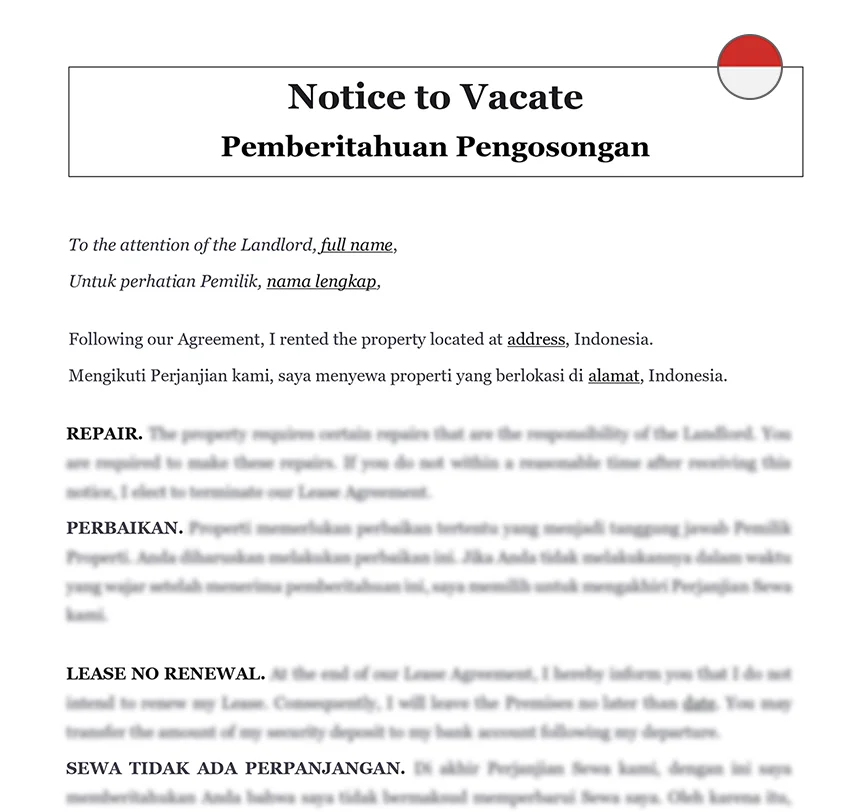The Importance of Drafting Effective Building Agreements in Indonesia
Building agreements are essential in ensuring that construction projects in Indonesia are completed smoothly and without disputes. These agreements outline the responsibilities, timelines, and financial obligations of all parties involved. This guide will provide comprehensive advice on drafting effective building agreements, with a focus on legal considerations, key components, and the importance of using a well-drafted construction contract.
Understanding the Basics of Building Agreements
1. Purpose and Scope: Clearly define the purpose and scope of the construction project. This section should detail the work to be done, including specifications, plans, and drawings.
2. Parties Involved: Identify all parties involved in the agreement, including the owner, contractor, subcontractors, and any consultants. Ensure that each party’s roles and responsibilities are clearly outlined.
3. Project Timeline: Establish a realistic timeline for the project, including start and end dates, and key milestones. Include provisions for delays and extensions.
4. Payment Terms: Detail the payment schedule, including the amount, timing, and conditions for each payment. Specify how variations or additional work will be compensated.
5. Quality Standards: Define the quality standards and materials to be used in the project. Include any relevant industry standards or codes of practice that must be adhered to.
6. Dispute Resolution: Include a dispute resolution mechanism, such as mediation or arbitration, to address any conflicts that arise during the project.
Key Legal Considerations for Building Agreements
When drafting a building agreement in Indonesia, several legal considerations must be taken into account:
1. Compliance with Local Laws: Ensure that the agreement complies with all local laws and regulations. This includes building codes, zoning laws, and environmental regulations.
2. Licensing and Permits: Confirm that all necessary licenses and permits have been obtained before commencing the project. This includes permits for construction, safety, and environmental impact.
3. Insurance Requirements: Specify the insurance coverage required for the project, including liability insurance, worker’s compensation, and property insurance.
4. Force Majeure: Include a force majeure clause to address unforeseen events such as natural disasters, strikes, or other events beyond the control of the parties that may delay the project.
5. Intellectual Property: Address the ownership and use of any intellectual property, such as architectural plans and designs, created during the project.
6. Termination Conditions: Define the conditions under which the agreement can be terminated by either party, including notice periods and any penalties for early termination.
ℹ️ For more details on drafting comprehensive building agreements, refer to our construction contract template.
Essential Documents for Building Agreements
When drafting building agreements, several essential documents must be included to ensure a comprehensive and legally sound contract. These documents help clarify the terms and conditions of the project and protect the interests of all parties involved:
| Construction Contract: This document details the responsibilities, financial obligations, and quality criteria for the project. |
| Project Specifications: A clear set of specifications for the project, including details about the plans, drawings, site preparation, and quality standards. |
| Schedule of Work: This document timelines the project from start to finish, highlighting key milestones and deadlines. |
| List of Materials and Standards: This list details the materials and standards to be used in the construction project, ensuring that all work meets the required quality and safety standards. |
Understanding Contractual Terms and Agreements
When drafting building agreements, it’s essential to thoroughly review and understand the contractual terms outlined in the construction contract. This contract should clearly define the scope of work, payment terms, and responsibilities of all parties involved. Pay close attention to clauses related to timelines, quality standards, and dispute resolution. By ensuring all terms are clearly defined and agreed upon, you can prevent misunderstandings and ensure a smooth project execution. For a well-drafted agreement, consider using our construction contract template, which covers essential aspects of construction projects. Additionally, related documents like the intent to purchase letter and land puchase agreement can further support your construction project needs.
Ask your question and receive legal advice from a qualified lawyer
310 client reviews (4.8/5) ⭐⭐⭐⭐⭐











